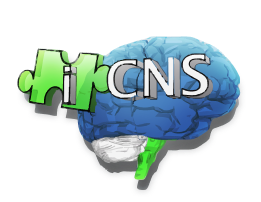Why neurofeedback?
Brainwaves may seem impossible to understand, let alone change, but the fact is that our brainwaves are the basis of our physical, emotional, and psychological stability. Depending on your mental health issues, there are times when a change in brainwave activity, whether in frequency (speed) or amplitude (size), can have a significant impact on your ability to function on a daily basis. Most doctors and mental health professionals rely on medication to treat psychological struggles, and that is effective and often necessary, but that is not the only way. While medication treats the chemical imbalance in the brain, the electrical side is often ignored. Medication is often long term, have significant and undesirable side effects, and for some disorders the client needs to remain on medication for the remainder of their life. By dealing with the electrical part of mental and emotional struggles, often medication can be reduced and sometimes, even eliminated. No two brains are exactly alike, just as no two people are exactly alike. Because of that, treatment length will vary by person, but once the brainwaves have been changed and the brain has accepted the change, the adjustments are permanent. How does it work?
Three things occur in the brain that cause the different struggles. The first is called “over arousal,” and happens when the brain is making waves that are too fast. This indicates that you are too active in that portion of your brain. The second is “under arousal” and happens when the brain is making waves that are too slow. Slow brain waves indicate that the portion of your brain is not as active or “awake” as it needs to be. The third is often referred to as “instability.” If your brain is showing a vast fluctuation in frequency, it is unstable. Often, instability occurs in opposite sides of the brain, where one side is producing brainwaves that are too fast and the other is producing waves that are too slow. Neurofeedback trains the brain to regulate these waves within normalized ranges. This means that the brain learns what frequencies it should be making, and after repeated reinforcement, it learns to make them on its own, without the guidance of the therapist.
Hold on… Does that mean that the therapist will SHOCK ME?
No! Neurofeedback is not the same as electroshock therapy! The sensors that are put on your head during neurofeedback only READ electrical signals. They can not sendelectricity into your body. The neurofeedback equipment (with the exception of the computer) works off of a battery.
Does it change my personality?
Neurofeedback cannot change the parts of you that make you who you are. The changes you will see in your life will include things like your sleep patterns, your ability to focus and concentrate, or your ability to relax and stay calm. You will not suddenly loose interest in your favorite activities, or change your sense of humor. You are not a pod person! My goal is to help you function better daily, not change who you are. Your personality is safe. In fact, one of the main reasons that people choose neurofeedback over medication is because it does NOT change your personality at all. You will not become a zombie or exhibit the side effects that often come with psychotropic medications.
